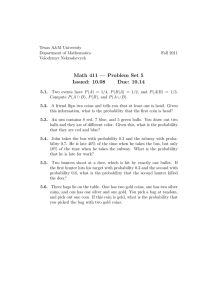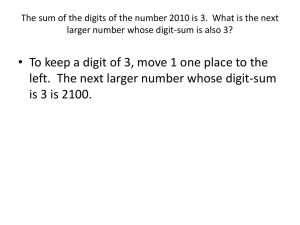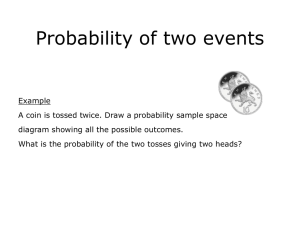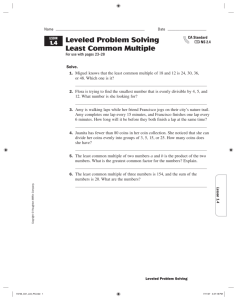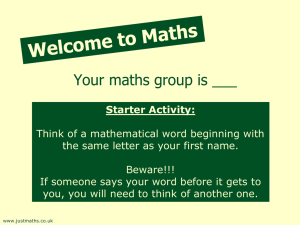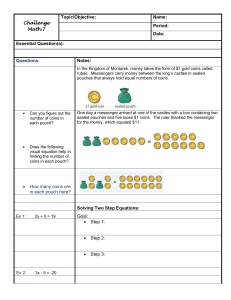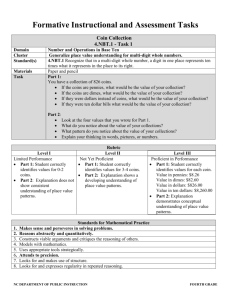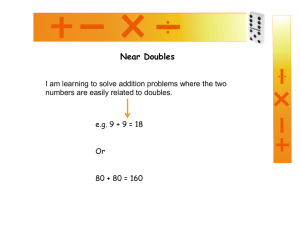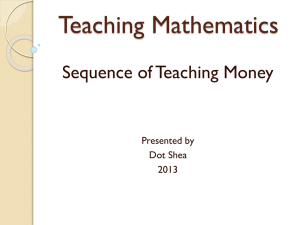805 - OpenStudy
advertisement
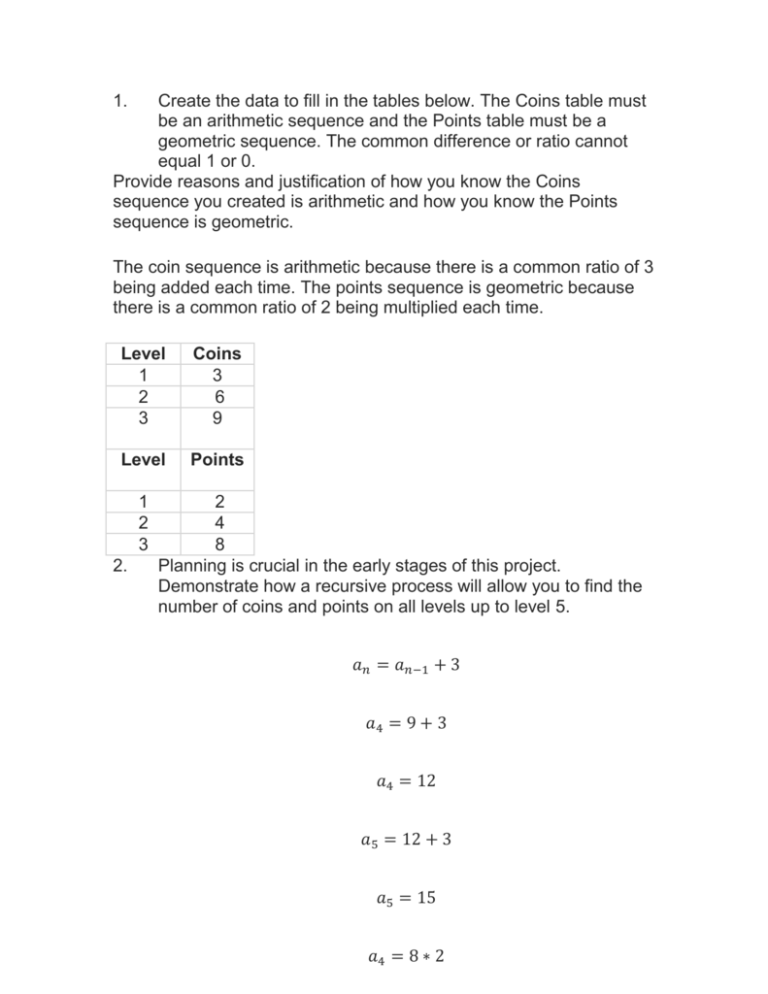
1. Create the data to fill in the tables below. The Coins table must be an arithmetic sequence and the Points table must be a geometric sequence. The common difference or ratio cannot equal 1 or 0. Provide reasons and justification of how you know the Coins sequence you created is arithmetic and how you know the Points sequence is geometric. The coin sequence is arithmetic because there is a common ratio of 3 being added each time. The points sequence is geometric because there is a common ratio of 2 being multiplied each time. Level 1 2 3 Coins 3 6 9 Level Points 1 2 3 2. 2 4 8 Planning is crucial in the early stages of this project. Demonstrate how a recursive process will allow you to find the number of coins and points on all levels up to level 5. 𝑎𝑛 = 𝑎𝑛−1 + 3 𝑎4 = 9 + 3 𝑎4 = 12 𝑎5 = 12 + 3 𝑎5 = 15 𝑎4 = 8 ∗ 2 𝑎4 = 16 𝑎5 = 16 ∗ 2 𝑎5 = 32 The development team has asked you to jump ahead of them in the project. Create the sequence formulas, an, for the coins and the points based on the level in the game. Then describe how the formula can be used to find the coins and values on level 15. Use complete sentences. 𝑎15 = 3 + 3(14) 𝑎15 = 3 + 42 𝑎15 = 45 𝑎15 = 2(2)14 𝑎15 = 2(16384) 𝑎15 = 32768 3. If the game only has 20 levels, explain how to find the value of the series for the coins and the points. Use complete sentences and arrive at final values. 𝑎20 = 3 + 3(19) 𝑎20 = 3 + 57 𝑎20 = 60 𝑎20 = 2(2)19 𝑎20 = 2(524288) 𝑎20 = 1,048,576 The programming team needs to understand the parameters for the game, in order to start coding it. Explain any restrictions to the domain and range of your sequences. The domain for the coins would be 𝑥 ≥ 1. There would be no restriction on the range. The domain for the points would be x≥1. There are no restrictions on the range.

